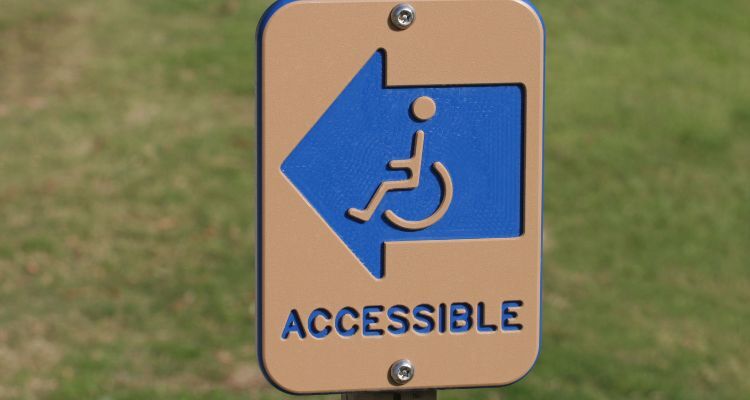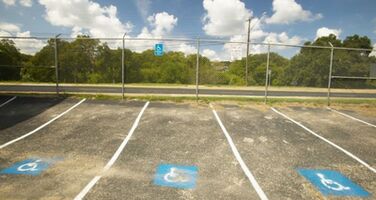
Myths vs. Facts: Debunking Common Misconceptions about Handicap Placards in South Dakota
Navigating the world with a disability can be challenging, but thanks to disability tags (also known as disability placards or permits), individuals with mobility issues can access designated parking spaces that make life a bit easier. In SD, like many other states, disability tags are a crucial resource for those who qualify. However, there are numerous misconceptions surrounding their use, eligibility, and regulations. This article aims to debunk some of the most common myths about handicap placards in South Dakota, providing accurate information to ensure that both those who need these tags and the general public have a clear understanding of their purpose and the laws governing them.
Understanding Handicap Placards: What Are They?
Before diving into the myths and facts, it's essential to understand what disability tags are and their role in society. Disability tags are special placards or license plates issued by the South Dakota Department of Motor Vehicles (DMV) that allow individuals with disabilities to park in designated accessible parking spaces. These spaces are typically located closer to the entrances of buildings, making it easier for those with mobility impairments to access facilities.
Types of Disability Tags in South Dakota
- Permanent Disability Tags: Issued to individuals with long-term or permanent disabilities. These tags are typically valid for five years.
- Temporary Disability Tags: Issued to individuals with short-term disabilities, such as those recovering from surgery. These tags are usually valid for up to six months.
- License Plates with Disability Emblems: Some individuals may choose to have a disability emblem on their license plate instead of using a separate placard.
Myth: Anyone Can Apply for a Handicap Placard in South Dakota
Fact: Not everyone is eligible for a disability tag. In SD, the eligibility criteria for obtaining a disability tag are clearly defined. Only individuals with specific medical conditions or disabilities that significantly impair their mobility qualify for these tags.
Eligibility Requirements Include:
- Inability to walk 200 feet without stopping to rest.
- The need for an assistive device such as a wheelchair, cane, crutch, or prosthetic device.
- Lung disease that limits your ability to breathe, making walking difficult.
- Cardiac conditions classified as Class III or IV by the American Heart Association.
- Severe limitations caused by an arthritic, neurological, or orthopedic condition.
Applicants must provide a completed application form signed by a licensed healthcare provider, verifying their condition. This process ensures that only those who genuinely need disability tags receive them.
Myth: Disabled Permits Are Only for the Elderly
Fact: Disability tags are not age-specific. While many older adults do qualify due to conditions related to aging, disability tags are available to any qualified individual, regardless of age. This includes young people and even children with disabilities.
Common Conditions Among Younger Individuals:
- Congenital Disabilities: Some children are born with conditions that impair their mobility, such as cerebral palsy or spina bifida.
- Injuries: Young people who have suffered severe injuries, such as those from accidents or sports, may qualify for temporary or permanent disability tags.
- Chronic Illnesses: Conditions like cystic fibrosis or severe asthma can significantly affect a young person's ability to walk long distances, making them eligible for a disability tag.
It's important to recognize that disabilities come in many forms and affect people of all ages.
Myth: A Handicap Placard Can Be Used By Anyone Driving the Vehicle
Fact: Disability tags are issued to individuals, not vehicles, meaning the person with the disability must be present in the vehicle when the tag is used. It's a common misconception that anyone driving a car with a disability tag can park in designated spaces, but this is incorrect and illegal.
Regulations Surrounding Use:
- The person to whom the disability tag is issued must either be the driver or a passenger in the vehicle.
- Misuse of a disability tag, such as a family member using it when the disabled person is not in the car, can result in fines, the revocation of the tag, and other penalties.
These regulations help ensure that accessible parking spaces are available for those who genuinely need them.
Myth: Disabled Permits Provide Exemptions from All Parking Rules
Fact: While handicap permits provide certain parking privileges, they do not exempt the holder from all parking regulations. For instance, vehicles with disability tags must still adhere to time limits on parking in certain areas unless specifically noted otherwise.
Key Points on Parking Rules:
- Time Limits: Some accessible parking spaces may have time restrictions that apply to all vehicles, including those with disability tags.
- Parking Fees: In some areas, vehicles with disability tags may still be required to pay parking fees unless there are specific exemptions provided by local ordinances.
- Restricted Zones: Parking in no-parking zones, fire lanes, or areas marked for loading and unloading only is still prohibited, even with a disability tag.
It’s essential for tag holders to familiarize themselves with local parking regulations to avoid fines.
Myth: Handicap Placards Are Valid Nationwide
Fact: South Dakota disabled permits are recognized in all 50 states under the Americans with Disabilities Act (ADA), but it's important to understand that each state has its own rules and regulations regarding their use.
Interstate Use of Disability Tags:
- Reciprocity: Most states, including SD, recognize disability tags from other states, allowing visitors with disabilities to use their tags while traveling.
- Local Regulations: However, local rules, such as parking fees or time limits, may still apply differently depending on the state or city you are visiting.
- International Travel: If traveling outside the U.S., disability tags may not be recognized, and it’s advisable to research the destination country's regulations in advance.
When traveling, it’s a good idea to carry your disability tag documentation in case you need to explain its use.
Myth: You Don’t Need to Renew a Permanent Disabled Permit
Fact: Even permanent disability tags in SD have an expiration date and must be renewed. The renewal process helps the DMV maintain accurate records and ensures that only those who continue to meet the eligibility criteria hold a disability tag.
Renewal Process:
- Expiration: Permanent disability tags in SD are typically valid for five years.
- Renewal Application: The renewal process involves submitting a renewal application to the DMV, which may include a new certification from a healthcare provider if requested.
- Timely Renewal: It’s important to renew your disability tag before it expires to avoid losing your parking privileges.
Failure to renew your tag on time could result in fines or difficulties accessing disabled parking.
Myth: You Can Get a Disabled Permit Without a Doctor’s Approval
Fact: In SD, obtaining a disability tag requires certification from a licensed healthcare provider. This requirement ensures that only those who truly need the tag receive it. Consult with a HandicapMD healthcare provider. Discuss your symptoms and mobility challenges with your doctor, and ask if they believe you qualify for a disability tag. The healthcare provider will complete the medical certification portion of your application, so it's important to have this conversation early in the process.
Certification Requirements:
- Licensed Healthcare Providers: Only licensed medical professionals, such as physicians, chiropractors, or advanced practice nurses, can certify the application.
- Medical Assessment: The healthcare provider must evaluate the applicant’s condition and determine whether they meet the criteria for a disability tag.
- Application Process: The completed application, including the healthcare provider’s certification, must be submitted to the DMV for approval.
This process prevents abuse of the system and ensures that disability tags are reserved for those who genuinely need them.
Myth: Disabled Permits Can Be Used by Family Members After the Tag Holder’s Death
Fact: Disability tags are strictly non-transferable and must be returned to the DMV upon the death of the individual to whom they were issued. Continued use of the tag by family members or others is illegal and can result in serious penalties.
Steps to Take After a Tag Holder’s Death:
- Return the Tag: The disability tag should be returned to the SD DMV as soon as possible after the tag holder’s death.
- Penalties for Misuse: Using a deceased person’s disability tag can result in fines, legal action, and the permanent loss of parking privileges for the offender.
- Legal Obligations: It’s important for family members to be aware of this obligation to avoid legal complications.
Returning the disability tag promptly helps keep the system fair and ensures that accessible parking spaces are available for those who need them.
Myth: Parking in Accessible Spaces Without a Handicap Placard Is Only a Minor Violation
Fact: Parking in an accessible space without a valid disability tag is a serious offense in SD. The penalties for this violation are significant and are enforced to protect the rights of individuals with disabilities.
Penalties for Unauthorized Parking:
- Fines: The fine for parking in an accessible space without a tag can range from $100 to $500, depending on the location and circumstances.
- Towing: In some cases, vehicles parked illegally in accessible spaces may be towed at the owner’s expense.
- Repeat Offenders: Repeat violations can lead to increased fines, potential court appearances, and other legal consequences.
These penalties underscore the importance of respecting accessible parking spaces and the individuals who rely on them.
Myth: You Can Park Anywhere with a Disabled Permit
Fact: While disability tags provide access to designated accessible parking spaces, they do not allow parking in prohibited areas or in a manner that obstructs traffic. The use of a disability tag does not override other parking restrictions.
Where You Can’t Park Even with a Disability Tag:
- No-Parking Zones: Areas clearly marked as no-parking zones remain off-limits.
- Fire Lanes: Parking in fire lanes is strictly prohibited and can result in immediate towing and fines.
- Private Property: Unauthorized parking on private property without the owner’s permission is illegal, even with a disability tag.
Holders of disability tags must still follow general parking regulations to ensure safety and accessibility for all.
Myth: Temporary Disabilities Don’t Qualify for a Disabled Permit
Fact: SD recognizes that not all disabilities are permanent and provides temporary disability tags for individuals with short-term mobility impairments. These tags offer the same parking privileges as permanent tags but are issued for a limited time.
Examples of Qualifying Temporary Disabilities:
- Surgical Recovery: Individuals recovering from surgery that temporarily limits mobility.
- Broken Limbs: Those with broken bones or severe sprains that require the use of crutches or a wheelchair.
- Pregnancy Complications: Expectant mothers with pregnancy-related mobility issues may qualify for a temporary disability tag.
Temporary disability tags are valid for up to six months, after which they must be returned or renewed if the condition persists.
Myth: It’s Okay to Lend Your Disabled Permit to a Friend or Family Member
Fact: Disability tags are assigned to individuals and are not transferable. Lending your tag to someone else, even a family member, is illegal and can result in the revocation of the tag and fines for both parties involved.
Consequences of Lending Your Tag:
- Revocation of Tag: The DMV may revoke your disability tag if it is found to be misused.
- Fines: Both the tag holder and the person using the tag without authorization can be fined.
- Legal Action: In some cases, misuse of a disability tag can lead to legal action, including misdemeanor charges.
To protect your parking privileges, it’s essential to ensure that only you or those transporting you use your disability tag.
Myth: All Accessible Parking Spaces Are the Same
Fact: Not all accessible parking spaces are identical. There are different types of accessible spaces, each designed to meet the varying needs of individuals with disabilities.
Types of Accessible Parking Spaces:
- Standard Accessible Spaces: These spaces are wider than regular spaces and are marked with the international symbol of access.
- Van-Accessible Spaces: These spaces are wider and include an access aisle to accommodate vehicles with side-entry wheelchair lifts or ramps.
- Limited Mobility Spaces: Some spaces are reserved for individuals with limited mobility but do not require the extra width needed for wheelchair lifts.
Understanding the differences ensures that the right space is used based on the needs of the individual.
Myth: Disabled Permits Automatically Renew
Fact: Disability tags do not renew automatically in SD. Whether temporary or permanent, all disability tags require the holder to take action to renew them before they expire.
Renewal Procedures:
- Notification: The DMV typically sends a renewal notice before the expiration date.
- Application Submission: The holder must submit a renewal application, which may include new medical certification, to continue using the tag.
- Expiration: Tags that are not renewed by the expiration date are no longer valid, and using an expired tag can result in fines.
Staying proactive about renewal helps avoid any interruptions in your ability to use accessible parking.
Frequently Asked Questions (FAQs)
1. Can I use my SD disability tag in other states?
Yes, SD disability tags are recognized in all 50 states under the Americans with Disabilities Act (ADA). However, you should be aware of local parking regulations, such as time limits and fees, that may vary by state or city.
2. How do I apply for a disability tag in SD?
To apply for a handicap placard in SD, you must complete an application form available from the DMV and have it certified by a licensed healthcare provider. The application must then be submitted to the DMV for processing.
3. What should I do if my disability tag is lost or stolen?
If your disability tag is lost or stolen, you should report it to the SD DMV as soon as possible. You may be required to submit a replacement application and may need to provide proof of the loss or theft.
4. Can I park in a van-accessible space with a regular disability tag?
Yes, you can park in a van-accessible space with any valid disability tag, but it’s courteous to leave these spaces for individuals who require the extra room for wheelchair lifts or ramps.
5. Are there any parking privileges for veterans with disabilities in SD?
Yes, SD offers special disability tags for veterans with service-connected disabilities, which provide the same parking privileges as standard disability tags. Veterans must provide documentation of their disability from the Department of Veterans Affairs to qualify.
6. What are the penalties for misuse of a disability tag in SD?
Penalties for misuse of a disability tag in SD can include fines ranging from $100 to $500, towing of the vehicle, revocation of the tag, and potential legal action, especially for repeat offenses.
Conclusion
Myths vs. Facts: Debunking Common Misconceptions about Handicap Placards in South Dakota highlights the importance of understanding the realities surrounding disability tags. By addressing and dispelling prevalent myths, we can foster a more inclusive and informed community. It is essential for residents to recognize the legitimate needs of individuals with disabilities and to support their right to accessible resources. Promoting awareness not only helps combat stigma but also encourages responsible use of disability tags, ensuring that those who truly need them can access vital services and spaces. Ultimately, a well-informed public is key to enhancing mobility and independence for all citizens in SD.
Whether you are a tag holder, a family member, or simply a concerned citizen, understanding the facts about disability tags is essential in supporting the rights and needs of individuals with disabilities in our communities.
.png)






